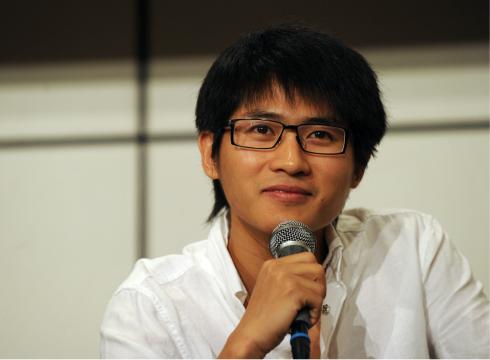An Independent movement takes root in China

A movement of Independent candidates for local office is slowly beginning to take shape in China. Some of the barriers they face may sound eerily familiar to Independents here in the US.
Over the course of the next year and a half, China will hold local elections for legislatures in over 2,000 counties and 30,000 townships across the country under an electoral law amended in March 2010 to “guarantee equal franchise to every citizen,” according to Xinhua. The process began on May 7th and will continue through December of next year. China’s government is, of course, tightly controlled by the ruling Communist Party. However, the country’s constitution and electoral law technically allow any citizen over the age of eighteen, who has not been formally deprived of political rights, to run for office in local direct elections, which are held every five years.
“Speak to most Chinese about what they know about local elections, and you’ll get incredulous looks. Who gave you the knuckle-brained idea there is such a thing in China? But local citizen candidates have stood successfully in elections before,” writes David Bandurski at the China Media Project.
Some have paid dearly for it. The Christian Science Monitor cites the case of Yao Lifa, who won a municipal seat through the self-nomination process in 1998:
“A teacher, [Yao] has not been given a teaching post since, has been beaten up several times, had his bones broken twice, has been repeatedly arrested, and is now under 24 hour police surveillance, he complains.”
Despite the potential risks, in recent weeks, dozens of political activists have announced their intentions to seek office in their town and county elections as Independent candidates. They include scholars, journalists, bloggers, workers and students. Observers project that they will be joined by tens of thousands of other Independent and self-declared candidates as the process progresses.
Exploiting avenues of communication opened by social media, the movement is taking shape to a great extent on Sina Weibo, a micro-blogging platform similar to Twitter. The China Elections and Government blog has detailed profiles of some of the candidates who have thrown their hats into the political ring, including that of Liu Ping, whose recent struggle with authorities and eventual expulsion from the election appears to have galvanized the movement.
An official in the National People’s Congress addressed the emergence of the movement in a statement issued last week declaring that there is no such thing as an “independent candidate” in China, but rather only “deputy candidates” and “official deputy candidates,” according to Xinhua. Activists appear to be unperturbed by the pronouncement. The New York Times quotes one former candidate who won election in 2003 stating:
“Over all, I think the official response is a little more positive than negative . . . Legally, there’s nothing wrong with what was said.”
The Times took a more pessimistic view of the situation, stating that such Independent candidacies had been declared “illegal,” and detailing the various procedural hurdles they must overcome to participate in the electoral process.
“In practice, candidates are largely handpicked by Communist Party officials and committees, and outsiders are frequently discouraged from seeking office . . . Candidates who lack official favor frequently find their route to office blocked, even if they meet legal qualifications,” writes Michael Wines.
Despite the magnitude of the differences between China and the US, it is difficult to ignore the fact that a number of the barriers facing Independent candidates in the one-party state sound strikingly similar to those faced by Independent candidates under our own two-party state. Indeed, they are almost comical.
Just two days before Xinhua reported that there is “no such thing as an independent candidate” in China, New York Governor Andrew Cuomo said much the same thing regarding Independent lawmakers in New York. Queried in a press conference as to how a new ethics law might affect legislators who are not affiliated with the Democratic or Republican party, the governor literally declared, “They don’t exist!”, garnering a hearty laugh of approval from Democrats and Republicans alike. In fact, however, they do, as Capitol Confidential noted the next day.
One might also consider that, as in China, there is technically no such thing as an “independent” candidate in California either. As it is currently written, California’s top-two open primary law prohibits candidates from describing themselves as “Independent” on the ballot. Independents are rather forced to identify themselves as having “no party preference.”
Furthermore, third party and Independent candidates who – almost by definition – “lack official favor” in the US routinely find their route to office blocked by systemic barriers. They face highly discriminatory ballot access laws. Operatives from the major parties systematically challenge their petitions. Media outlets and pollsters dismiss or ignore their candidacies. They are prohibited from participating in candidate forums and debates, and so on.
China’s embryonic Independent movement has a long road ahead of them, as does our own.





